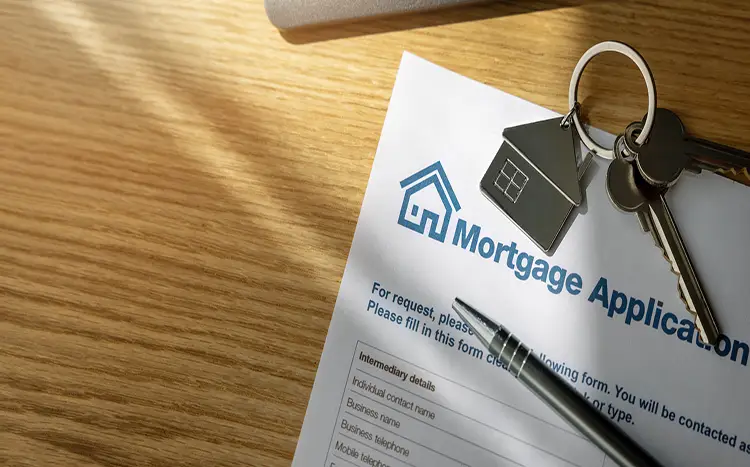What is an Interest-Only Mortgage?
Published on July 10, 2024 | 5 Minute read

Melanie
Ortiz Reyes
Content Specialist
An interest-only mortgage is a type of loan where the borrower is only required to pay the interest on the principal balance for a certain period, typically for the first few years of the mortgage term. Unlike traditional mortgages where payments include both principal and interest, interest-only mortgages allow borrowers to delay paying down the principal amount initially, potentially resulting in lower monthly payments during the interest-only period.

How Does an Interest-Only Mortgage Work?
With an interest-only mortgage, the borrower pays only the interest on the loan for a specified period. This usually ranges from 5 to 10 years. After this initial period, the mortgage typically converts to a traditional amortizing loan, where monthly payments increase to include both principal and interest. Here’s a breakdown of how it typically works:
- Interest-Only Period: During this initial phase, borrowers make monthly payments that cover only the interest accrued on the loan. This results in lower monthly payments compared to traditional mortgages.
- Transition Period: Once the interest-only period ends, the mortgage payment structure changes. Borrowers must start paying principal along with interest, which can significantly increase monthly payments.
- Principal Repayment: After the interest-only period, the remaining principal balance is amortized over the remaining term of the loan. Monthly payments increase as borrowers begin to pay down the principal amount borrowed.

Pros of Interest-Only Mortgages
- Lower Initial Payments: One of the primary advantages of interest-only mortgages is that they offer lower monthly payments during the interest-only period. This can be beneficial for borrowers who need to manage their cash flow in the short term or who anticipate increased income in the future.
- Flexibility: Interest-only mortgages provide borrowers with flexibility in managing their finances. During the interest-only period, borrowers have the option to make additional payments towards the principal if they choose, reducing the overall interest paid over the life of the loan.
- Investment Opportunity: Some borrowers use interest-only mortgages to invest the money they would have allocated to principal payments into other investments that potentially yield higher returns. This strategy can be risky but may offer financial benefits for disciplined investors.

Cons of Interest-Only Mortgages
- Higher Total Interest Costs: Because borrowers delay paying down the principal amount, interest-only mortgages typically result in higher overall interest costs compared to traditional amortizing mortgages over the life of the loan.
- Potential Payment Shock: When the interest-only period ends, monthly payments can increase significantly as borrowers start paying both principal and interest. This payment shock can be challenging for borrowers who are unprepared for higher payments.
- Depreciating Property Values: If property values decline during the interest-only period, borrowers may find themselves owing more on their mortgage than the home is worth once the loan transitions to principal repayment. This situation, known as negative equity, can create financial difficulties if borrowers need to sell the property.

Requirements for Obtaining an Interest-Only Mortgage
- Good Credit Score: Lenders typically require a strong credit score to qualify for an interest-only mortgage. Borrowers with higher credit scores demonstrate a history of responsible credit management, which reduces the lender's risk.
- Higher Down Payment: Lenders may require a larger down payment for interest-only mortgages compared to traditional loans.
- Stable Income: Lenders evaluate a borrower's income stability and ability to make mortgage payments, particularly after the interest-only period ends and payments increase. Stable employment and sufficient income are needed for approval.
- Financial Reserves: Some lenders may require borrowers to have financial reserves, such as savings or investments, to cover unexpected expenses or payment increases after the interest-only period.

Is an Interest-Only Mortgage Right for You?
In order to decide whether an interest-only mortgage is suitable for your financial situation, consider your short-term and long-term financial goals, risk tolerance and ability to manage payment increases. Here are some factors to consider:
- Financial Goals: If you prioritize lower initial payments and have a strategy for using the savings wisely, an interest-only mortgage could align with your goals.
- Income Stability: Assess your confidence in your future income and ability to afford higher payments once the interest-only period ends.
- Property Market: Consider the current and projected trends in property values in your area. Remember, fluctuations in property values can impact your equity position over time.
- Risk Management: Evaluate your risk tolerance and ability to manage financial risks associated with potential payment increases and changes in property values.
An interest-only mortgage can offer flexibility and lower initial payments for borrowers who understand the risks and benefits. It's recommended to consult with a financial advisor or mortgage expert to determine if an interest-only mortgage aligns with your goals and circumstances. Carefully weigh the pros and cons so you can make an informed decision.